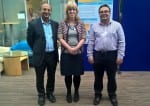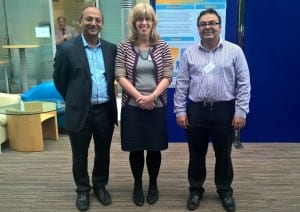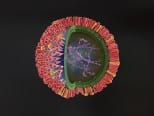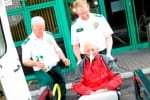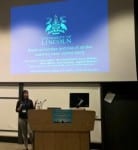 Members of CaHRU, Dr Coral Sirdifield, Ana Godoy and Prof Niro Siriwardena attended the annual conference of the European Forum for Primary Care (EFPC), ‘Integrated primary care: research, policy and practice’, at the Tobacco Museum in Amsterdam from 30 August to 1 September 2015 to meet with colleagues and present an invited workshop on patient experience at the meeting. Niro Siriwardena is a member of the advisory board of the EFPC and attended a board meeting on the day before the conference.
Members of CaHRU, Dr Coral Sirdifield, Ana Godoy and Prof Niro Siriwardena attended the annual conference of the European Forum for Primary Care (EFPC), ‘Integrated primary care: research, policy and practice’, at the Tobacco Museum in Amsterdam from 30 August to 1 September 2015 to meet with colleagues and present an invited workshop on patient experience at the meeting. Niro Siriwardena is a member of the advisory board of the EFPC and attended a board meeting on the day before the conference.
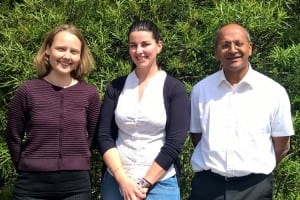 The workshop, entitled ‘QUALICOPC in the UK, the patient perspective, took place on the first afternoon of the conference and was informed by work from CaHRU on the EU funded Quality and Costs of Primary Care in Europe (QUALICOPC) study. The session was well attended, enabling participants to discuss different approaches for measuring patient satisfaction with primary care and how satisfaction could be improved. Coral and Ana presented an innovative approach called Importance-Performance Analysis, using the QUALICOPC data from England, to demonstrate how the technique could help practitioners, researchers and policy makers to identify where one most needed to focus to improve patient satisfaction.
The workshop, entitled ‘QUALICOPC in the UK, the patient perspective, took place on the first afternoon of the conference and was informed by work from CaHRU on the EU funded Quality and Costs of Primary Care in Europe (QUALICOPC) study. The session was well attended, enabling participants to discuss different approaches for measuring patient satisfaction with primary care and how satisfaction could be improved. Coral and Ana presented an innovative approach called Importance-Performance Analysis, using the QUALICOPC data from England, to demonstrate how the technique could help practitioners, researchers and policy makers to identify where one most needed to focus to improve patient satisfaction.
 The conference included excellent keynotes from Prof Chris van Weel, Emeritus Professor of General Practice at Nijmegen (‘The history of Dutch General Practice or: how Primary Care saved the nation’), Dr Isabel Moulon from the European Medicine Agency (‘Bridging the gap between medicine development and clinical practice: is primary care out of the picture?’), Ellen Nolte from the European Observatory on Health Systems and Policies (‘Integrating care: what we know and what we do not know’), Prof John Øvretveit of the Karolinska Institute (‘Priorities for actionable research to speed and spread improvements in caring for chronic illnesses’), Dr Tonka Poplas Susič and Metka Žitnik Šircelj (‘Model practices in family medicine in Slovenia’) and a closing summary from Prof Marc Bruijnzeels of the Jan van Es Institute (‘Challenges for the future of integrated primary care’). A range of parallel research, debate and workshop sessions, lunch on a riverboat and an excellent conference dinner provided a full, interesting and enjoyable programme for delegates.
The conference included excellent keynotes from Prof Chris van Weel, Emeritus Professor of General Practice at Nijmegen (‘The history of Dutch General Practice or: how Primary Care saved the nation’), Dr Isabel Moulon from the European Medicine Agency (‘Bridging the gap between medicine development and clinical practice: is primary care out of the picture?’), Ellen Nolte from the European Observatory on Health Systems and Policies (‘Integrating care: what we know and what we do not know’), Prof John Øvretveit of the Karolinska Institute (‘Priorities for actionable research to speed and spread improvements in caring for chronic illnesses’), Dr Tonka Poplas Susič and Metka Žitnik Šircelj (‘Model practices in family medicine in Slovenia’) and a closing summary from Prof Marc Bruijnzeels of the Jan van Es Institute (‘Challenges for the future of integrated primary care’). A range of parallel research, debate and workshop sessions, lunch on a riverboat and an excellent conference dinner provided a full, interesting and enjoyable programme for delegates.


